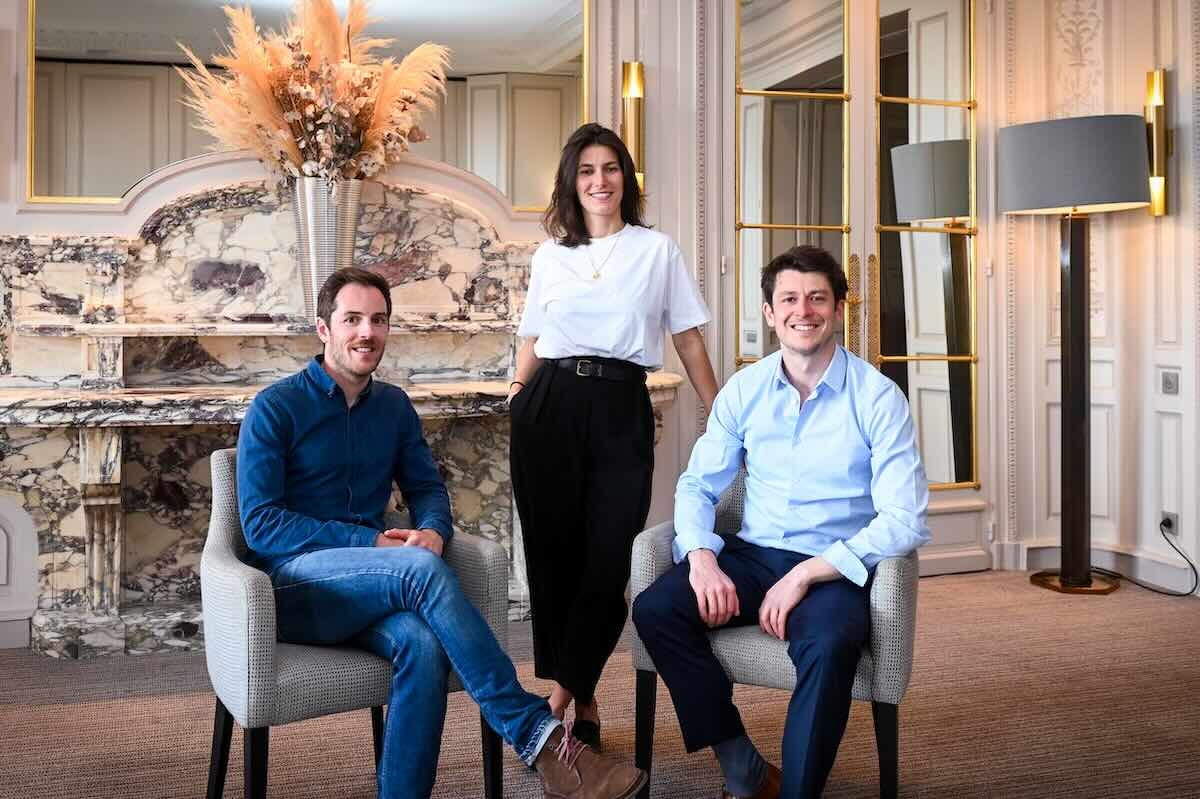In March this year, Cleo, an AI-powered chatbot offering budgeting tips, held a party in central London for both current and former employees. The occasion: to celebrate reaching $100m in annual recurring revenue (ARR) according to a document seen by Sifted.
It was a big moment for CEO and founder Barney Hussey-Yeo, who is a first-time founder and initially launched Cleo as a chatbot on the Facebook Messenger app in 2016, two years after graduating from university with a masters in machine learning.
“Being able to build a company from your bedroom when you were an absolute nobody to having over 300 employees and $100m ARR is a sign you’re growing fast,” he says. “If you look back at these things, you want to celebrate those moments in the business.”
Cleo has reached this milestone by melding fintech tools, including saving and credit products, with the buzzy sector du jour of AI. The company also made the early decision in 2018 to focus on the US over the UK.
Hussey-Yeo now says the company has reached $150m in ARR and is eying a fundraise early next year to fuel its expansion plans, particularly its long-awaited return to the UK. But to make its next steps a success, the fintech will have to keep a balancing act — guaranteeing the safety of the users it provides personal finance tips to, as well as ensuring its AI assistant keeps up with the latest advances in the sector.
Cleo is also planning to expand its product suite and the number of countries it operates in, as it aims to keep that revenue number going in the right direction.
Keeping up with Cleo
Cleo’s most visible product is its AI assistant which uses open banking — a system that enables the sharing of financial data between third parties, such as Cleo, and banks — to create a personalised money management plan for users. By accessing your income, bills and spending, and combining them with your life goals, Cleo’s AI is built to encourage better financial habits.
But unlike OpenAI’s chatbots, Cleo is intentionally designed to have a distinct personality. If Cleo sees you’ve spent half your paycheque on takeaways in the last month, for instance, Cleo’s “Roast Mode” will call you out for it. The fintech even employs around ten comedians on staff to keep Cleo up to date with cultural events, says its product director Fernanda Dobal.
Cleo’s sassy personality, which is built with a combination of LLMs and is integrated with ChatGPT, seems to be proving popular. Cleo has over 7m users in total and has raised $138m in funding from investors including EQT Ventures, LocalGlobe and Balderton Capital.
Heavily-personalised AI chatbots can come with risks. Last month, for instance, a 14-year-old living in Florida took his life after spending months talking to and developing an emotional attachment to chatbots on Character.AI, an app where users can speak with AI characters (the teenager’s mother blames the app for her son’s passing).
In response to a New York Times story on the matter Jerry Ruoti, Character.AI’s head of trust and safety said: “We want to acknowledge that this is a tragic situation, and our hearts go out to the family. We take the safety of our users very seriously, and we’re constantly looking for ways to evolve our platform.”
Hussey-Yeo says Cleo spends millions on annotating the chatbot’s conversations with the vast majority of users to mitigate any risks. For particularly sensitive content, it won’t use LLMs and instead will use traditional machine learning to audit conversations. Around a third of Cleo’s 300+ team work on its chatbot functionality, he adds.
“You have to spend a huge amount of money on safety,” he says. “Training towards the right objective function is so critical to be able to make sure the model is controlled… that’s why we get all that annotated data so we can fine tune it.”
Money talks
At its core, Cleo’s chatbot acts as a veneer over how the company makes money. It offers a three-tier subscription plan that unlocks a credit-building card and cash advances with extra features for Cleo bundled on top depending on the plan. According to Companies House filings, Cleo made $39.2m from subscription revenue, more than half of its $65.9m in total turnover in 2023.
The rest of its revenue comes from transaction fees — payment interchange fees on purchases with its card and also fees from its cash advance product.
Along with a savings product, Hussey-Yeo says that one of the main draws of the subscription is its cash advance product, which allows customers to receive up to $250 to tide them over until payday. With Cleo using open banking to understand a user’s financial position, there’s no external credit check involved. That makes it well-suited for gig workers or those with unstable incomes.
“It’s basically for anyone who’s going to hit their overdraft or for someone that’s going to have to turn to a high-interest credit card,” he says.
Hussey-Yeo’s first job out of university was as a data scientist at Wonga, the payday loan company that collapsed into administration in 2018 after a surge in compensation claims from customers alleging they were mis-sold loans and charged excessive rates.
He says Cleo’s lending products are fundamentally fairer than what was offered by Wonga, which he says keeps consumers in a “downward spiral” of debt. Instead of taking interest or issuing fines for late payments, Cleo makes money from its product by levying fees on the same-day advances.
Expansion plans and new products
The cash advance feature also played a pivotal role in the company’s growth and made up the majority of its revenue before the AI boom, he says, adding that there are plans to add mortgage products and loans for cars to its product suite.
“We were always going to monetise our financial products as Revolut, Monzo, Chime and everyone else does,” Hussey-Yeo says.
He tells Sifted that he’s got his eye on raising funding next year to finance those plans while taking a page out of Revolut’s book by expanding to other markets at the same time as building out its product lines.
As it’s done with its savings and credit products, it’ll partner with financial institutions to recommend the best mortgage and loan products to its users. But it’s not trying to become a bank, Hussey-Yeo says, allowing the fintech to remain nimble as it expands (LatAm, Canada and Europe are in the pipeline once the UK relaunch gets off the rails).
“We're trying to own that relationship, make sure you trust and love Cleo and then we own product distribution,” he says. “We want to provide you with the best products that are going to save you money in the long term.”




